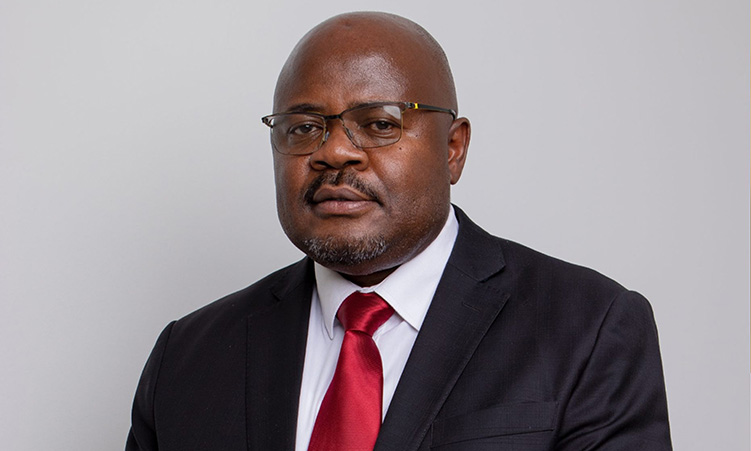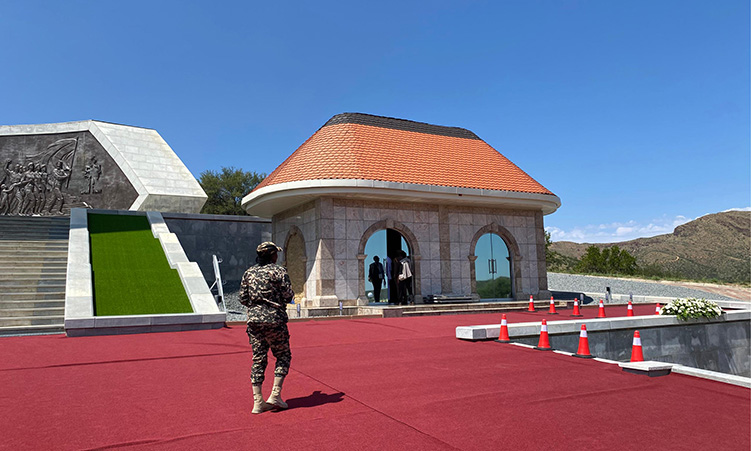ON Monday April 27 2009, the National Assembly passed an amendment to the Namibian Constitution, increasing the waiting period for Namibian citizenship by both marriage and naturalisation to ten years.
The National Council is set to review this constitutional amendment in due course. The impetus for the amendment is a concern about foreign nationals using fraudulent marriages to Namibians as a route to Namibian citizenship. However, the ten-year waiting period does not distinguish between genuine, good-faith marriages and fraudulent marriages exploited for the purpose of obtaining citizenship. The ten-year period effectively penalises foreign spouses in genuine marriages to Namibians by leaving them without a secure status in the country, yet still fails to provide a direct solution to the problem of citizenship fraud. Consider the amendment’s proposed ten-year waiting period for citizenship by marriage on the foreign spouse, whom we will consider to be the wife for the purpose or our examples. During this time, she may experience the unforeseen death of her Namibian spouse or domestic violence which leads to a divorce. If the marriage comes to an end through death or divorce before the ten-year waiting period has passed, what is the status of the foreign spouse living in Namibia? Such circumstances could have significant consequences not only for the spouse, but also for any children born into the marriage during this period. According to the Permanent Secretary of the Ministry of Home Affairs and Immigration, Samuel Goagoseb, a foreign spouse who has entered into a good-faith marriage to a Namibian has several options to obtain greater stability in her right to remain in Namibia. A foreign spouse married to a Namibian citizen has ‘domicile’ if she is lawfully in Namibia (through a good-faith marriage to her Namibian spouse), is physically living in the country and intends to make Namibia her home. Domicile is acquired automatically and does not require a formal application. It cannot be ‘lost’. For example if a foreign spouse’s marriage to a Namibian ends because of death or divorce, the foreign spouse can remain in Namibia unless it is determined that she poses a security threat to Namibia or has committed an offence under the Immigration Control Act No. 7 of 1993. However, as a matter of practicality, a foreign national ‘domiciled’ in Namibia through marriage to a Namibian could consider applying for one of the following in order to document her status in Namibia: a Certificate of Identification, a Permanent Residence Permit, a Temporary Residence Permit or a Work Permit. These avenues are open to foreign spouses living in Namibia, regardless of whether or not they hope to eventually obtain Namibian citizenship; after all, some foreign spouses are not interested in Namibian citizenship, but simply want to live in Namibia with their families. These various documents can be useful ways of confirming the foreign spouse’s entitlement to remain in the country, as well as facilitating travel in and out of the country. Furthermore, one of these forms of documentation is usually required for everyday matters, such as opening a bank account or applying for certain jobs. Mr Goagoseb explained that a Certificate of Identity may be obtained free of charge by submitting an application form and producing a Police Clearance Certificate. This Certificate of Identity is sometimes referred to as a ‘domicile certificate’.Foreign nationals, whether or not they are married to Namibians, may apply for a Permanent Residence Permit. In order to obtain Permanent Residence, one must have lived in Namibia for a ‘reasonable time period’ before making the application and pay the applicable fee. Presently, the time period for obtaining a Permanent Residence Permit is being increased to ten years. Factors considered in deciding whether to grant a Permanent Residence Permit include the applicant’s good character, financial resources and academic and professional qualifications. Prior to obtaining a Permanent Residence Permit, a foreign national may obtain and renew either a Work Permit or a Temporary Residence Permit through the usual channels at the Ministry of Home Affairs and Immigration. (Note that, strictly speaking, a work permit is only issued if you have a job offer.)If a marriage ends before the foreign spouse has acquired citizenship, the years that she has been living in Namibia during the marriage are automatically counted towards the ten-year residency period required for citizenship by naturalisation. So there are practical ways for a foreign spouse to guard her right to remain in Namibia while she waits ten years to obtain citizenship by marriage or naturalisation. But most of these alternatives involve a substantial amount of time and money, and in effect penalise foreign spouses who have entered into good faith marriages to Namibians. Whatever the waiting period for Namibian citizenship by marriage, the best way to prevent foreign nationals from obtaining citizenship through fraudulent marriages is by detecting and investigating suspicious marriages before they take place, or shortly thereafter. Currently the Ministry of Home Affairs and Immigration does not have a centralised registry of marriages. Because of this administrative gap, there have been incidences of Namibians fraudulently entering into multiple marriages with foreigner nationals in order to facilitate citizenship. A centralised and accessible database of marriages in Namibia would prevent the issuing of multiple marriage certificates involving the same spouse. The Permanent Secretary has explained that there is a ‘mushroom effect’ whereby foreign nationals marry Namibians solely to obtain citizenship and then re-marry other foreign nationals who also subsequently obtain citizenship by fraudulent marriage. This practice could be more readily curbed by the kinds of monitoring practices used in many other countries. In the United States, the US Citizenship and Immigration Services may conduct a special interview to investigate whether a particular marriage is a sham. Prior to the interview, the couple may be investigated by searching the internet for any postings they have may have made (such as wedding photos on social sites like Facebook); a criminal background check; a credit check and any evidence which might show that the couple are not living as husband and wife. During the interview, the couple will be asked to show they have been actually living as a married couple through proof such as joint bank accounts, birth certificates of their children and documents such as insurance policies and lease agreements.However, in Namibia, the Permanent Secretary acknowledges that the Ministry’s surveillance unit does not actively investigate suspicious marriages unless a complaint is filed. This reactive approach to monitoring and preventing citizenship fraud is highly problematic and cannot be cured by simply changing the Constitution to increase the waiting period for citizenship. A better approach would be sharpened investigative skills and tools to detect marriages entered into for the purposes of evading immigration or citizenship laws, combined with a less drastic amendment to the Constitution.There has been considerable public interest and commentary on this amendment by way of letters and SMSes in the media, yet there have been no public hearings on the matter. Citizenship and marriage have a profound impact on the lives of ordinary people, such as the status of children, the acquisition of property and the ability to travel, work and study. We hope that the National Council will accordingly conduct public hearings on the amendment as part of its review.While the need to address fraudulent marriage is important, the current constitutional amendment which increases the waiting period for citizenship by marriage fivefold seems excessive and punitive. We urge the National Council to consider the impact of the increased waiting period on foreign spouses in good faith marriages, and to consider modifying the amendment to increase the waiting period for citizenship by marriage to five years instead of ten. The Constitution should not be used as a shield to make up for a lack of policing of fraudulent marriages, or a sword against good faith marriages and families in Namibia.* Dianne Hubbard is the Co-ordinator of the Gender Research & Advocacy Project at the Legal Assistance Centre. Ruth Y Chun is a Canadian lawyer intern with the Legal Assistance Centre in Windhoek, Namibia.
Stay informed with The Namibian – your source for credible journalism. Get in-depth reporting and opinions for
only N$85 a month. Invest in journalism, invest in democracy –
Subscribe Now!










